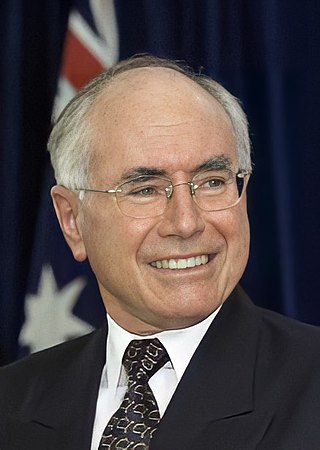
The 2004 Australian federal election was held in Australia on 9 October 2004. All 150 seats in the House of Representatives and 40 seats in the 76-member Senate were up for election. The incumbent Liberal Party of Australia led by Prime Minister of Australia John Howard and coalition partner the National Party of Australia led by John Anderson defeated the opposition Australian Labor Party led by Mark Latham.

The Shooters, Fishers and Farmers Party (SFF) is an Australian political party. It primarily advocates for increased funding and services for rural and regional Australia, protecting the right to farm, enhancing commercial and recreational fishing, tougher sentencing for illegal firearm trade and usage, and relaxing gun control for law abiding citizens.
A group voting ticket (GVT) is a shortcut for voters in a preferential voting system, where a voter can indicate support for a list of candidates instead of marking preferences for individual candidates. For multi-member electoral divisions with single transferable voting, a group or party registers a GVT before an election with the electoral commission. When a voter selects a group or party "above the line" on a ballot paper, their vote is distributed according to the registered GVT for that group.

The Liberal Democratic Party, shortened as LDP, Liberal Democrats, or Lib Dems, is an Australian political party founded in Canberra in 2001. The party espouses smaller government and supports policies that are based on classical liberal, libertarian principles, such as lower taxes, opposing restrictions on civil liberties, decentralisation, utilising nuclear energy, and the relaxation of smoking laws.

Elections for the 54th Parliament of New South Wales were held on Saturday, 24 March 2007. The entire Legislative Assembly and half of the Legislative Council was up for election. The Labor Party led by Morris Iemma won a fourth four-year term against the Liberal-National coalition led by Peter Debnam.

In Australian politics, the two-party-preferred vote is the result of an election or opinion poll after preferences have been distributed to the highest two candidates, who in some cases can be independents. For the purposes of TPP, the Liberal/National Coalition is usually considered a single party, with Labor being the other major party. Typically the TPP is expressed as the percentages of votes attracted by each of the two major parties, e.g. "Coalition 50%, Labor 50%", where the values include both primary votes and preferences. The TPP is an indicator of how much swing has been attained/is required to change the result, taking into consideration preferences, which may have a significant effect on the result.
The Climate Change Coalition (CCC), briefly known as 4Change, was an Australian political party, which was formed in 2007 with a view to accelerate action by politicians from all parties on global warming and climate change. Its position on working towards addressing climate change stressed cooperation with big business in order to achieve significant progress on the issue. The party therefore advocated a close working relationship between environmentalists and the business community. The CCC was registered as a political party with the Australian Electoral Commission (AEC) on 4 September 2007 and deregistered on 25 March 2010.

How-to-vote cards (HTV) are small leaflets that are handed out by party supporters during elections in Australia. Voting in the Australian lower house uses a preferential voting system. Voters must rank every candidate on the ballot in order for their vote to count. There are often numerous candidates on the ballot, some with little public profile, so voters may find it difficult to decide on all of them. Parties produce how-to-vote cards ostensibly to help voters. They contain details about the candidate or party as well as instruction how to cast a ranked vote in the order that the party would prefer the voter follow. The flow of preferences can assist the party dispersing the cards directly and indirectly help allied parties.

Pirate Party Australia is a political party in Australia that had traditionally represented civil liberty issues, but had also expanded into more traditional areas of policy. It was a Pirate Party which was based on the Pirate Party of Sweden, and continued to develop a comprehensive policy platform since its formation based on the Pirate ethos.
Glenn Druery is an Australian political strategist, electoral campaigner and ultra-distance cyclist. He has played a leading role in the electoral success of various micro and minor parties in Australia since the mid-1990s.
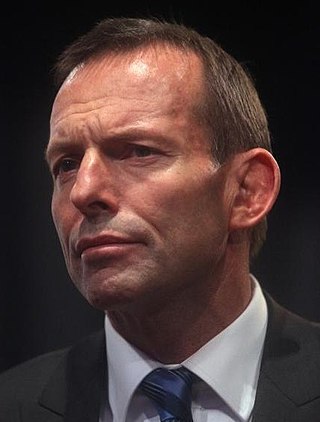
The 2013 Australian federal election to elect the members of the 44th Parliament of Australia took place on 7 September 2013. The centre-right Liberal/National Coalition opposition led by Opposition leader Tony Abbott of the Liberal Party of Australia and Coalition partner the National Party of Australia, led by Warren Truss, defeated the incumbent centre-left Labor Party government of Prime Minister Kevin Rudd in a landslide. It was also the third time in history that a party won 90 or more seats at an Australian election. Labor had been in government for six years since being elected in the 2007 election. This election marked the end of the Rudd-Gillard-Rudd Labor government and the start of the 9 year long Abbott-Turnbull-Morrison Liberal-National Coalition government. Abbott was sworn in by the Governor-General, Quentin Bryce, as Australia's new Prime Minister on 18 September 2013, along with the Abbott Ministry. The 44th Parliament of Australia opened on 12 November 2013, with the members of the House of Representatives and territory senators sworn in. The state senators were sworn in by the next Governor-General Peter Cosgrove on 7 July 2014, with their six-year terms commencing on 1 July.
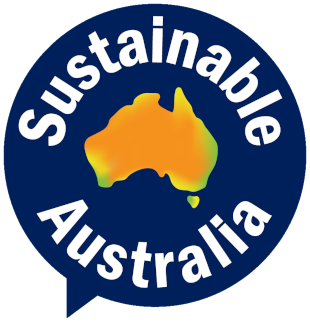
The Sustainable Australia Party, formerly the Sustainable Population Party, is an Australian political party formed in 2010.
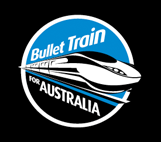
Bullet Train for Australia was an Australian political party, registered from 2013 to 2017. It was a single-issue party campaigning for a fast implementation of high-speed rail. It advocated that the first stage of the bullet train should run from Melbourne to Newcastle via Canberra and Sydney, and be built within 5 years.
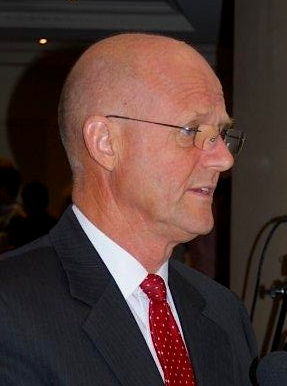
David Ean Leyonhjelm is an Australian former politician. He was a Senator for New South Wales, representing the Liberal Democratic Party from 2014 to 2019. Having been elected at the 2013 federal election, he took office on 1 July 2014, and was re-elected in the 2016 full Senate election. He resigned from the Senate in March 2019 to stand for the Legislative Council at the 2019 New South Wales state election, but failed to be elected. Before being elected to federal parliament, Leyonhjelm worked as a veterinarian and then as an agribusiness consultant. He also writes columns for several Australian publications, with a concentration on rural issues.

The following tables show state-by-state results in the Australian Senate at the 2013 Australian federal election.
The Minor Party Alliance (MPA) is a collaborative undertaking of small Australian political parties, created by Glenn Druery's "Independent Liaison" business, which assists in organising preference meetings and negotiating preference flows between minor parties in Australia. The aim of the Alliance is the election of Alliance candidates to Australian upper houses based upon the accumulation of their primary votes and the registered "above-the-line" party preferences to reach an electoral quota. For the Australian Senate, the quota for a half-Senate election in each State is normally 14.3%. The MPA effectively aims to "game" the electoral system, an act it believes to be justified, based upon their perception that the Australian electoral system is unfair and heavily biased against minor parties.

CountryMinded was an Australian political party between 2014 and 2018 that claimed to represent the interests of regional Australians whose livelihoods depend either directly or indirectly on agricultural production. The party was founded in December 2014 by a group of people looking for accountable regional representation, including two brothers from New South Wales, David and Peter Mailler as the Country Party of Australia, and changed its name to CountryMinded in September 2015. In 2018, the party merged with the Australian Democrats.

The Seniors United Party of Australia (SUPA) was an Australian political party. It was known as Seniors United NSW until 3 March 2016. The party was founded by Ray Morritt, Nick Agnew, Frank Fitzpatrick and Neil Smith who were dissatisfied with the NSW Government's legislation on retirement villages and other seniors issues. The party was deregistered by the AEC on 29 June 2022.

The 2022 Australian federal election was held on Saturday 21 May 2022 to elect members of the 47th Parliament of Australia. The incumbent Liberal/National Coalition government, led by Prime Minister Scott Morrison, sought to win a fourth consecutive term in office but was defeated by the opposition Labor Party, led by Anthony Albanese. Up for election were all 151 seats in the lower house, the House of Representatives, and 40 of the 76 seats in the upper house, the Senate.

The Australian Federation Party (AFP), also known as AusFeds and formerly known as the Country Alliance and the Australian Country Party, is an Australian political party. Founded in 2004 by four rural Victorians, the party lodged its initial registration with the Victorian Electoral Commission on 15 August 2005.
















